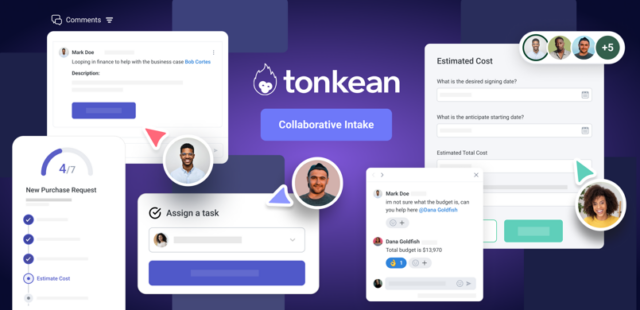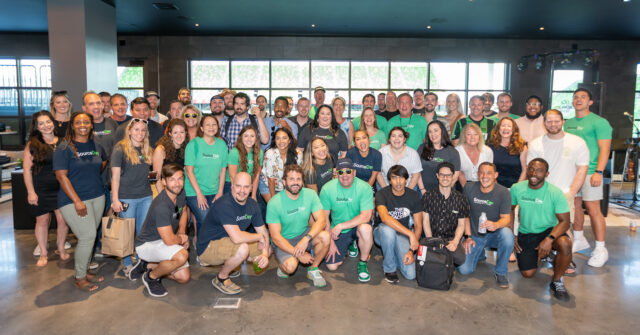Procurement is in a state of flux.
Against a backdrop of economic uncertainty, the procurement landscape is volatile and requires agility to navigate turbulent waters. But, despite significant disruption could there still be opportunity?
Simon Whatson, Vice President of Efficio Consulting, is optimistic about the future of digital procurement and despite a challenging few years he is confident of a successful bounce back. He gives us the lowdown on the direction of travel for digital procurement in 2023.

As an executive with considerable experience in the space, we’d love to learn more about your background and how you ended up in procurement. Why was this the specialism for you and how did you get involved to begin with?
Simon Whatson (SW): “I think the one-word answer of how I came into procurement was accidental. I studied maths at university, with a year in France, before I began looking for different roles to apply for.
“Eventually, I was offered a position with a big plumbing and heating merchant with global operations. I worked in that supply chain team for two and a half years. Although it was called supply chain, a lot of the work was procurement, which involved negotiating with suppliers. It was after that stint there, that I discovered consulting and joined a boutique procurement consultancy. Now I am onto my third consultancy and I’m very happy here!
“In terms of why I’ve stayed, one of the success factors in procurement is being able to work cross-functionally. Procurement doesn’t own any of the spending that it is responsible for helping to optimise. It must work with other functions and the spend owners. I quite like the people side of that, building relationships, almost selling internally to bring teams together. That really appeals to me and is a key reason why I’ve been very happy in procurement.”
As we move into exploring procurement today in 2023. The space is filled with challenges and complexities. You only need to look at the last few years. Covid, war in Ukraine, inflation – how would you describe the world’s recent challenges and their effect on the industry and what do you feel CPOs and leaders can do to combat these issues?
SW: “I would flip it around and say that these are not so much challenges but rather opportunities for procurement. When I started my career 18 years ago, procurement was often fighting to get a voice and there were complaints that procurement was not represented at the top table, but the war in Ukraine, inflation, COVID and ESG, these are things which are now on the C-suite agenda and procurement is ideally positioned to help companies face those challenges. If you think about COVID and the war in Ukraine, procurement is in a privileged position to help with this.
“I see some procurement functions that prefer to do what they know, which focuses on the process and transactional side. However, there are also many forward-thinking CPOs and procurement professionals out there, that have really seized this opportunity of being on the C-suite agenda and drive the thinking and the solutions to some of these big challenges we’re seeing.”
Although new technology in procurement has been around for well over a decade, digitalisation has become so much more of an important topic. How would you sum up where procurement and supply chain are in terms of digital transformation today?
SW: “It’s a bit laggard, but digital transformation is difficult, and we have to recognise there are some real trailblazers. There are some firms doing some fantastic things in digital to produce better outcomes. If you contrast your experience when you’re buying something in your private life, it’s much easier than 20 years ago. You can get access to a wealth of pre-sourced things, whether it’s food, a holiday, a car, or a book. You can see reviews of what other people think of these things.
“But when you go into your workplace as a business user and you want to buy something, it doesn’t quite work like that yet. You often have to fill in a form, send it off and wait for them to come back to you. They might come back a little bit later than you were hoping and might tell you that they don’t have that part on the supply frameworks. I think people sometimes get confused about how it can be so easy to buy something as large as a car or a holiday on their sofa at home, but when they want to buy something at work, it seems to be quite cumbersome. Digital can help a lot with that, but it is incumbent on organisations and procurement functions to figure out how to recreate that customer experience that we’ve become accustomed to in our private lives.”
With a new generation of leaders growing up with technology, some might say that it could be a key driver in helping to speed the adoption in procurement along. Is this something you would agree with or what would you point to as a key driver?
SW: “I do think that it will act as one of the catalysts for further digital transformation in organisations, because if procurement doesn’t manage to recreate that customer experience that the new generation expects, then they won’t use procurement going forward and will look to bypass it.
“The analogy that I’ve used previously in this case is one of travel agents. I remember as a child, my parents were able to take us on holiday and I remember the whole process. We would walk into town to the travel agent, and look at some of the brochures of options. They often then had to phone the various airlines or resorts on our behalf. They might not be able to get through, so we’d have to come back the next day. I remember as a child being quite excited by the whole process but actually, thinking back, it was quite cumbersome. You compare that to now, with being able to review online, and you can get instant answers to your questions. It’s not a coincidence that travel agents don’t really exist anymore.”
How much of a challenge is it to not get caught leveraging technology for technologies sake? How important is it to stay true to your approach and be strategic?
SW: “We conducted a study of many procurement leaders and CPOs a few years ago, and one of the things that we found was that about 50% of procurement leaders admitted to having bought technology just on the basis of a fear of missing out, without any real understanding of the benefits that technology was going to bring. That was a real shock and a revealing find because technology is not cheap, and its implementation is quite disruptive. If you’re purchasing a system because everybody else is using it, then there could be some pretty costly mistakes. It is really important to make sure that when buying technology, it is because the benefits are fully understood.
“My advice to companies when looking to digitalise is own your data, visualise that data, and manage your knowledge. If you can focus on getting those things right in that order, and make your technology decisions to support that goal, then that’s a much better way of thinking about it rather than just jumping in and buying a piece of technology.”
It’s clear that the procurement space is an exciting, but challenging, place to be. What do you think will play a key role in the next 12 months to push the digital conversation further to take procurement to the next level?
SW: “Looking forward, one thing that procurement needs to do and continue to do is attract the best people. Ultimately, people are what makes an organisation, and it is what makes a function successful. I think procurement has often not looked for the right skills in the people that it employs. Traditionally, it’s looked for people with procurement experience and while they are valuable and required, we also need leadership potential. People who think a bit more outside the box and aren’t so process driven. A lot of what procurement has done in previous years has been process driven, so if you’re just limiting your search of people to those that have had procurement experience, you’re inevitably going to end up with a lot of people who are process driven.
“I think being bolder and recruiting people from different backgrounds with different skill sets is the way to go. If procurement can ‘own’ the ESG space, that will help with the younger generation see procurement make a difference. I think that’s one thing that will be key to success going forward.”
Check out the latest issue of CPOstrategy Magazine here.











